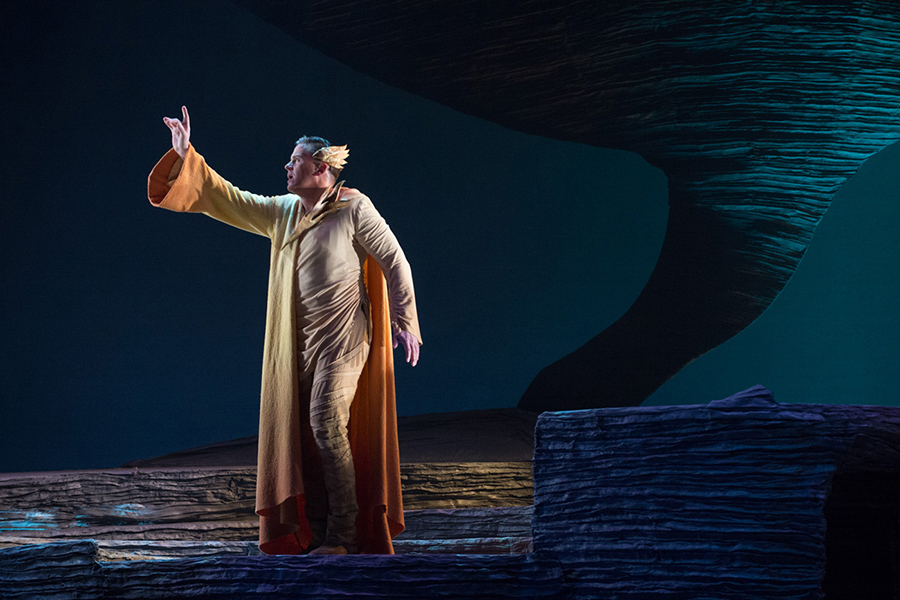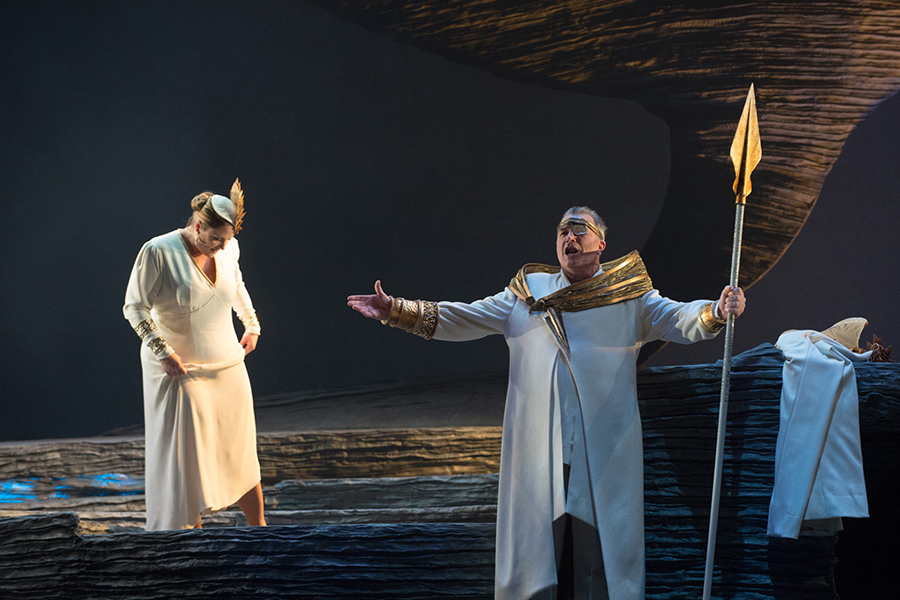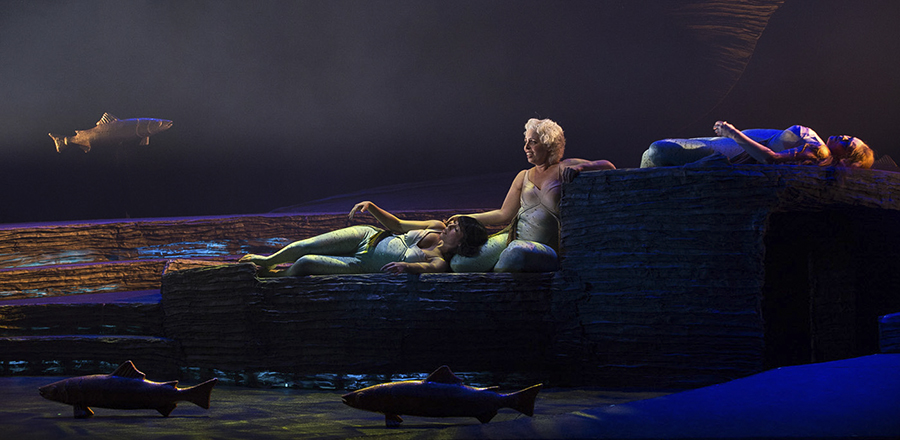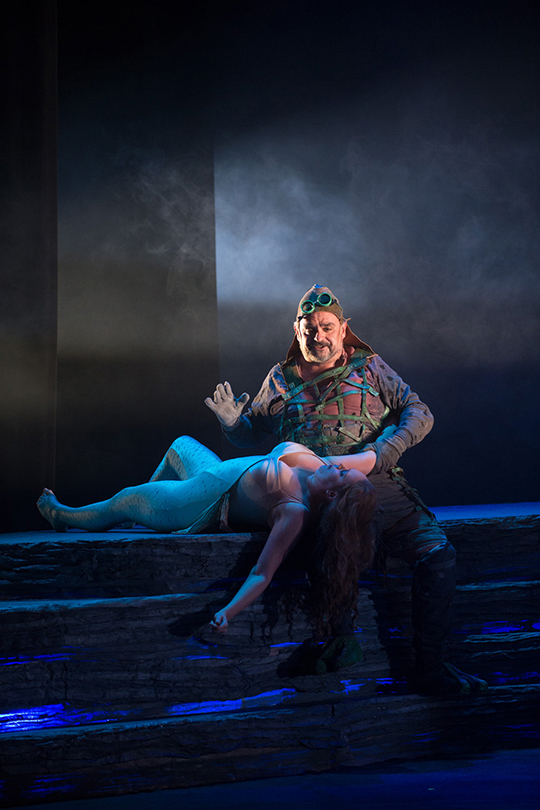Jeremy Galyon - Fafner
Benjamin Butterfield - Mime
Doug MacNaughton - Donner
Adam Luther - Froh
Susan Platts - Erda
Lucia Cesaroni - Woglinde
Betty Waynne Allison - Wellgunde
Maria Soulis - Floßhilde
Betty Waynne Allison - Freia
The Ring des Nibelungen may present a world populated by gods, giants and dwarfs, but it is far from naïve. Rheingold primarily is a universal story about greed, power, and hubris. Its characters try to obtain more wealth and power than they deserve. In doing so they abuse one another and destroy their environment, finally destroying themselves.


to continue
click on the right arrow


Surprisingly up-to-date
Close reading reveals how surprisingly up-to-date the opera's libretto is. We live in a world that is trying to recover from financial crisis. In Rheingold, a century and a half ago, Wagner pointed out the causes of such crisis with incredible accuracy, including destructive elements such as toxic mortgages, exhibitionist self-enrichment, and reckless speculation with natural resources and other people's capital. Das Rheingold presents us with a systemic breakdown in accountability and ethics.
Wim Trompert
Read the reactions in the press:
Gordon Gietz as Loge
photo: David Cooper
John Fanning as Wotan
and Joni Henson as Fricka
Photo: David Cooper
Director's Notes
Richard Wagner wrote the libretto for Das Rheingold himself. He took elements of several Germanic and Icelandic myths and sagas and moulded them into a new story. Wagner was not interested in retelling old stories. He was a man whose ideas stretched far beyond the boundaries of myth and music, and he used Der Ring des Nibelungen, his magnum opus, to communicate them to the world.
Maria Soulis as Floßhilde
Betty Waynne Allison as Wellgunde
In Rheingold's four scenes the composer demonstrates the mechanism of greed by presenting examples of how it arises, develops, provokes agression and - unless stopped in time - leads to inevitable ruin.



Betty Waynne Allison
as Wellgunde
photo: David Cooper

Director: Wim Trompert
Set designer: Hans Winkler
Costumes: Nancy Bryant
Lighting: Kevin Lamotte
Victoria Symphony
John Fanning - Wotan
Gordon Gietz - Loge
Todd Thomas - Alberich
Joni Henson - Fricka
Richard Wagner: 'Das Rheingold'
Pacific Opera Victoria (2014)
